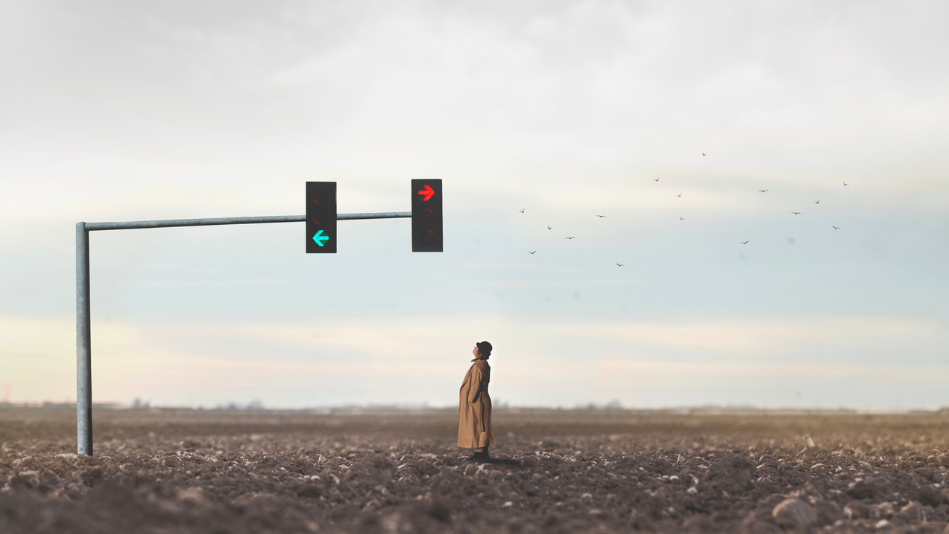The Strange and Unexpected Place Where Fulfillment Hides
An inspired pair of psychotherapists reveal the truth about why satisfaction and peace of mind may elude us—even when we've followed all the rules.

Photo: fcscafeine/Getty Images
PAGE 2
"The Schaubs' view of addiction is particularly eye-opening: "It isn't just about drugs and alcohol," Bonney says. "Some people say, 'I'm a shopaholic,' or that kind of thing. But the next step is to understand how habitual thoughts stop us. For example, someone I work with has a hard time taking in all the things she has accomplished. There's a part of her that's tremendously envious of other people." She can now watch that misery-making process start in her thinking, Bonney says: "She goes into a social situation and compares herself—that person looks better than she does, that woman's younger, that person makes more money. It becomes completely self-defeating. It takes over the way a drug does. But it goes back to her survival instincts from childhood. This was her way of taking care of herself—having to always be the best and the smartest and the prettiest to get the attention she needed."
"Worry," Richard says, "can also be addictive. "I know a highly successful woman with tons of money in the bank, but she obsessively thinks about every horrible thing that could happen—If this goes wrong, I'll do that, and if X happens, I'll do Y—so she probably won't end up on the street. Then she feels temporarily relieved, as though she had a drink. But it's destroying her stomach," Richard says. "To liberate your consciousness, you have to recognize these patterns and actively help free yourself."
Looking in your dark corners takes guts—but the eventual payoff might be extraordinary. "So many people feel a nagging sense that they're not getting something, some promise hasn't been fulfilled," Richard says. "Our understanding is that we have potentials we don't have a name for and we don't know how to make them active. That's part of the spiritual journey, to discover those capacities."
"When Dante started to write The Divine Comedy, he had lost everything," Bonney says. "He needed to face his losses and then find a way to still feel hope and connection." Dante spent the last years of his life reaching for higher states of consciousness, and he taught that love—an ego-transcending unity—is the source of all joy. "I see people today who are so identified with a job and then the job isn't there, and the first response is, Oh my God, this is unimaginable. But once they get past the shock, a lot of people start to reconnect with what's really important to them. And they're grateful. They wouldn't have chosen to be thrown into this position, but it got them to reevaluate what they want to do with their lives, what they want to put their energy into." And their vulnerability can bring them closer to other people, "to a sense of union as opposed to separateness," Bonney says. "Having listened to so many people's stories, I can read what Dante wrote and recognize it as true and feel tremendously encouraged by the fact that literature and art can touch human truth at such a deep level."



